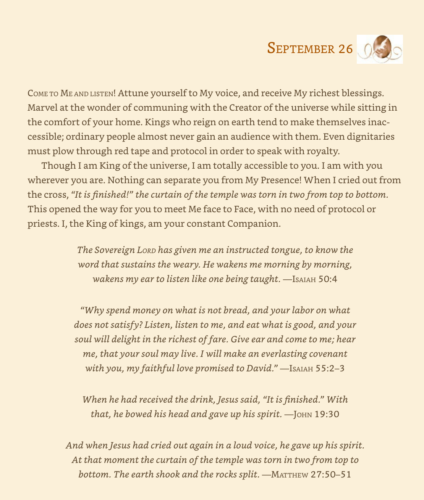Liminal Space
Father Richard describes how both life and religion can invite us into liminal, sacred space as well as provide us opportunities to escape or ignore it:
We keep praying that our illusions will fall away. God erodes them from many sides, hoping they will fall. But we often remain trapped in what we call normalcy—“the way things are.” Life then revolves around problem-solving, fixing, explaining, and taking sides with winners and losers. It can be a pretty circular and even nonsensical existence.
To get out of this repetitive cycle, we have to allow ourselves to be drawn into sacred space, into liminality. All transformation takes place here. There alone is our old world left behind, though we’re not yet sure of the new existence. That’s a good space where genuine newness can begin. We must get there often and stay as long as we can by whatever means possible. It’s the realm where God can best get at us because our false certitudes are finally out of the way. This is the sacred space where the old world is able to fall apart, and a bigger world is revealed. If we don’t encounter liminal space in our lives, we start idealizing normalcy. The threshold is God’s waiting room. Here we are taught openness and patience as we come to expect an appointment with the Divine Doctor.
I believe that religion’s unique and necessary function is to lead us into liminal space. Instead, religion has largely become a confirmation of the status quo and business as usual. Religion should lead us into sacred space where deconstruction of the old “normal” can occur. Much of my criticism of religion comes about when I see it not only affirming the system of normalcy but teaching folks how to live there comfortably. [1]
Culturally, we don’t want to embrace liminal space or recognize our natural egocentricity. In fact, we avoid trying to experience it at all. We shut away people who are ill and dying in hospitals and nursing homes, rather than allowing them to spend their final days at home, surrounded by loved ones who will learn and grow by dwelling together in the liminal space between life and death. We avoid other times of liminality in our lives through denial, escaping with the help of alcohol, sugar, and drugs to avoid truly experiencing the opportunities of liminal space. Yet the irony is that liminal space doesn’t have to be difficult. While it can be challenging, it can also be extremely rewarding. I discover there is another Center, and it’s not me!
Liminal space relativizes our perspective. When we embrace liminality, we choose hope over sleepwalking, denial, or despair. The world around us becomes again an enchanted universe, something we intuitively understood when we were young and somehow lost touch with as we grew older. [2]
